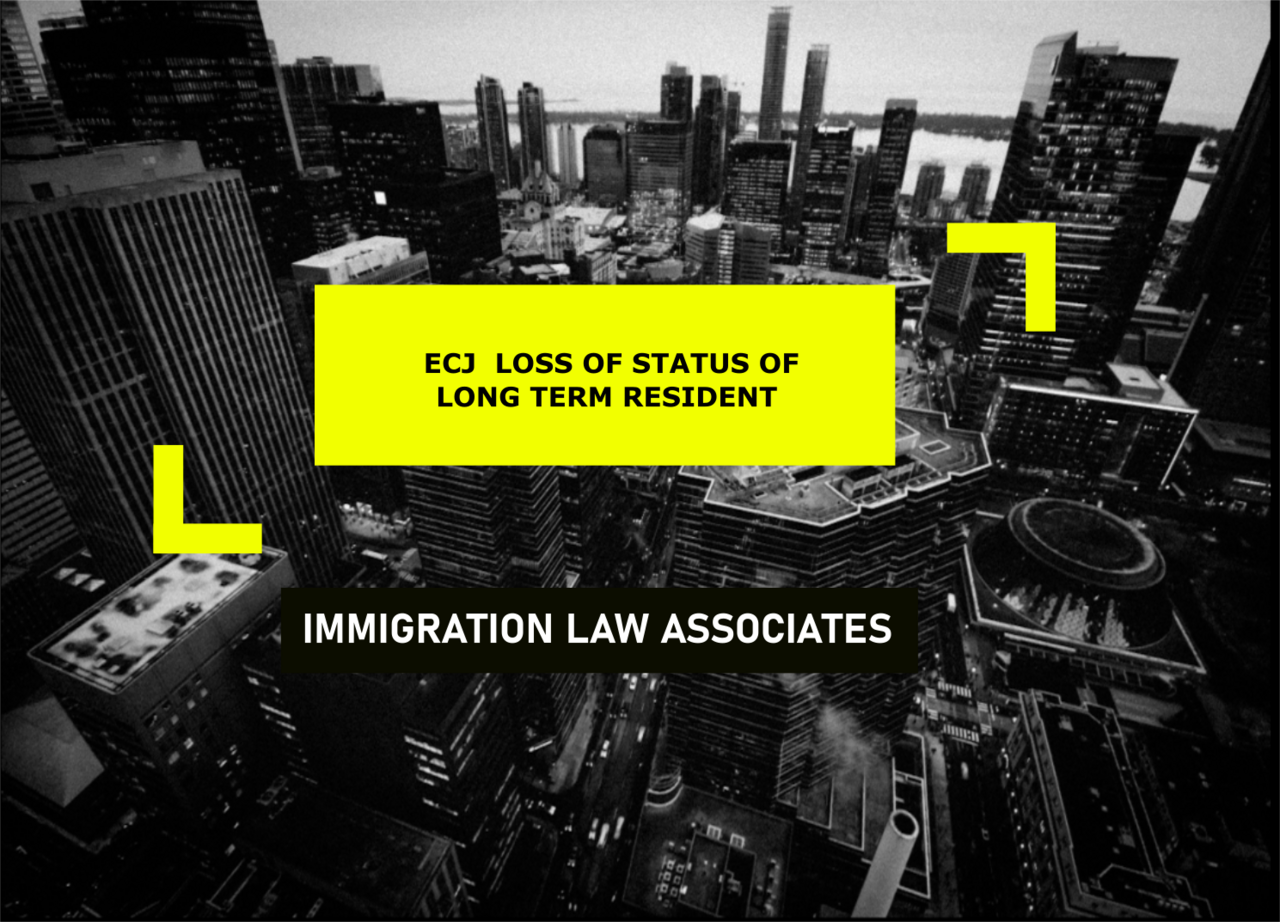ECJ rules on the loss of the status of long-term resident- “absence” means merely “non-presence”

In C-432/20 (ZK, 20 January 2022, EU:C:2022:39), the ECJ clarifies the unique interpretation may be given by Member States and by national courts to Article 9(1)(c) of Directive 2003/109/EC concerning the status of third-country nationals who are long-term residents.
1 Article 9(1)(c) reads as follows:
“Long-term residents shall no longer be entitled to maintain long-term resident status in the following cases:…
(c) in the event of absence from the territory of the [European Union] for a period of 12 consecutive months.”
2 The Head of Government of the Province of Vienna, reads the said article as entailing an obligation “to satisfy additional conditions such as having had, for at least part of the relevant period of 12 consecutive months, his or her habitual residence or centre of interests in that territory.”
3 The first question referred by the Administrative Court of Vienna to the ECJ for preliminary ruling reads as follows:
“Must Article 9(1)(c) of Directive [2003/109] be interpreted as meaning that any physical stay, no matter how short, of a third-country national who is a long-term resident in the territory of the [European Union] during a period of 12 consecutive months precludes loss of the status of long-term resident third-country national under this provision?”
4 The ECJ observes first that Article 9(1)(c) does not contain any reference to the national law of the Member States, and consequently, the concept of ‘absence’, must be given an autonomous interpretation throughout the European Union, “taking into account the wording of that provision, its context, and the purpose of the rules of which it forms part”.
As regards the wording of Article 9(1)(c), the usual meaning of the term “absence” in everyday language is merely “non-presence”. It follows that “any physical presence of the person concerned in that territory is capable of interrupting such an absence.”
As regards the context of Article 9(1)(c), and the purpose of the rules laid down by Directive 2003/109, the ECJ underlines inter alia that:
- where residence (and not merely presence) is required (e.g., Article 4), “the directive expressly states so by using the relevant expressions”
- a strict interpretation of Article Article 9(1)(c) is justified by the objective of the directive, notably the integration of third-country nationals who have already demonstrated that they are settled, “by bringing their rights closer to those enjoyed by EU citizens”
- a strict interpretation of Article 9(1)(c) “is better able to guarantee the persons concerned an adequate level of legal certainty”
The ECJ concludes that:
“Article 9(1)(c) of Council Directive 2003/109/EC of 25 November 2003 concerning the status of third-country nationals who are long-term residents must be interpreted as meaning that any physical presence of a long-term resident in the territory of the European Union during a period of 12 consecutive months, even if such a presence does not exceed, during that period, a total duration of only a few days, is sufficient to prevent the loss, by that resident, of his or her right to long-term resident status under that provision.”





Please sign in or register for FREE
Sign in OR sign up to become a registered The Forum for Expatriate Management website user
Subscribe here